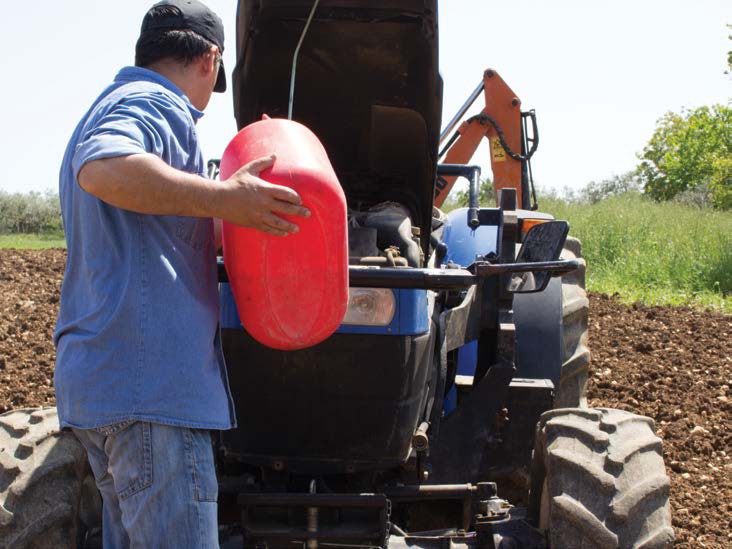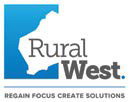What to do when
tough times create financial difficulty
Farmers often face economic difficulties at some point during their business’ lifetime, and multiple financial crises are not uncommon. During these difficult times, the future may seem bleak and uncertain.
Unfortunately, farming is unpredictable, and things can go south quickly due to events like natural disasters, drought or crop failure. Other times it’s because of more common problems, like unexpected expenses, rising input costs or falling market prices. Family disputes, divorce, or death can also cause personal upheaval that adversely affects a business’s bottom line.
If you ever find your business in a position like this, don’t worry. There are steps you can take to improve the situation! Having an open mind and regularly communicating are critical elements to working through a financial crisis.
Proven suggestions for addressing financial difficulty
Have an open mind and communicate openly
When a business struggles financially, the owners and employees need to be open to new ideas and ways of doing things. An open mind and open communication are essential to recovering from financial hardship. If everyone is on the same page, brainstorming new ideas and working together, the business will have a better chance of recovery. Open minds allow for consideration of different solutions, and open communication ensures that everyone is aware of what is happening and has a voice in the decision-making process.

ECONOMIC difficulties can be caused by unexpected expenses, rising input costs or falling market prices.
An open mind and open communication are essential to recovering from financial hardship.
Engage external support
Who can the business reach out to when wanting to get assistance and talk about what’s happening?
Feeling isolated is tough, especially when you’re in financial trouble. Though working through the difficulty without support may be appealing, it is generally more effective for people to collaborate. This way, ideas can be sound boarded, and access to experience and expertise is readily available.
When looking for someone to assist with your business situation, finding someone trusted to keep everything confidential is important.
It is also crucial that they remain impartial and only focus on the business’s recovery. Sharing business experiences with somebody trusted can aid in making the load lighter and can also be more effective than going at it alone. The support engaged could be a trusted friend or neighbour with business experience, a business accountant or farm advisor, or an organisation like Rural West, which incorporates the Rural Financial Counselling Service of WA.
Step back and assess the situation
Keeping a level head can be challenging, but it’s crucial in differentiating facts from emotions. Once a trusted advisor with the business’s best interests is identified, work with them to see where things stand. This can lead to a better understanding of the businesses’ ability to reduce debt or manage payment plans with creditors. Moreover, it can also aid in assessing the business as a whole and creating strategies for the future.

ONCE a trusted advisor with the business's best interests is identified, work with them to see where things stand.
Sharing business experiences with somebody trusted can aid in making the load lighter.
Strategies for the future may include determining whether or not the business is sustainable in the long run or if it is nearing the end of its financial lifespan. The business can then update the status of its current financial position, including assets, liabilities and cash flow for the next one or more years. After evaluating the business and financial situation, decisions can be made as to whether it would be more feasible to restructure, sell, or liquidate the company.
Plan for rebuilding
If the commitment is to continue running the business, drawing up a preliminary plan for reconstruction is the next step.
Subsequently, start by reaching out to creditors, letting them know of the business’ current hardships and advise them of the intent to repay debts owed in full; however, request their understanding and aid in the form of increased timeframes for payments or other terms of leniency.
Address debt
If the business has bank debt, it will be important to contact the bank and discuss the situation. If the business has a dedicated bank contact, this will be a good starting point. If there is no direct contact in the bank, all banks have a ‘Hardship’ section to call, and they can start analysing the business position. Hopefully, the bank will provide assistance, such as extending payment terms or changing account structure to give short-term relief. An example would be moving from principal and interest on a loan to interest only so cash flow can be better managed until recovery progresses.
For Australian Taxation Office (ATO) debt, the business needs to contact the ATO hardship service.
The ATO supports business owners and will do everything possible to aid in the set-up of payment plans and extended arrangements.
Once plans are in place, it is critical that ongoing contact with creditors is maintained to keep them aware of the business’s position. It is important to recognise that most creditors will be patient if you keep up communication. Most creditors would rather get paid 3, 6 or even 12 months late than not get paid at all.
Regular reviews of business plans and cash flow budgets
Now that immediate debts and critical issues have been addressed, it is time to begin thinking about how to maintain a better financial future for the business. Review the cash flow budget regularly and try to include a safety margin for unplanned expenses.
Regularly reviewing the business recovery plan and communicating with lenders and creditors are key to business recovery. Most farming businesses can recover well once plans are in place and communication is maintained.
Often difficult times like these build stronger bonds between the farming business and their suppliers and lenders who learn that the business operator is reliable and trustworthy to repay debt even when faced with difficult times.
The key points of managing unexpected business difficulties are finding trustworthy people to work with and then ensuring that communication with creditors is open, honest, and consistent.
MORE INFORMATION
If your business is experiencing or at risk of financial difficulty, please do not hesitate to contact us. We have worked with many businesses through these difficult times and our team of Small Business & Rural Financial Counsellors is ready to assist.
Rural West is a free, mobile, confidential and independent strategic business financial counselling service supported by the State and Federal governments. Rural West works with a wide range of primary producers and regional small business owners to improve their position and profitability.
Contact Rural West on 1800 612 004 or email enquiries@ruralwest.com.au
